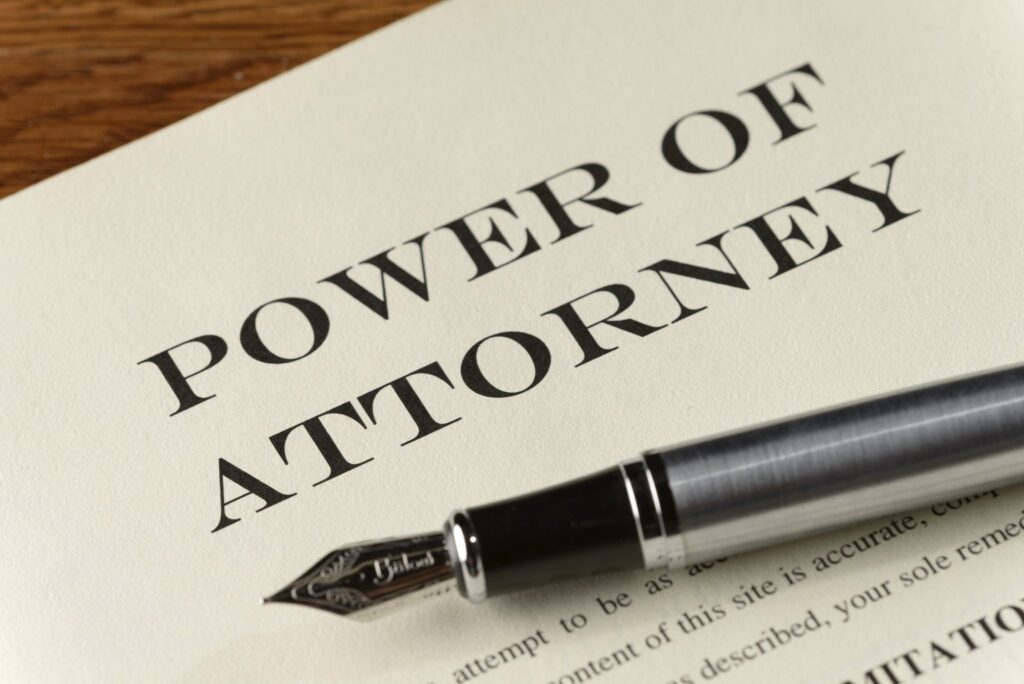Imagine the following situation: your elderly parent named you as their agent in a Power of Attorney document, giving you the authority to manage their finances and make medical decisions if they became unable to do so. For years, you’ve handled their bills, signed documents, and ensured their care. Then, sadly, they pass away. Amid your grief, you’re left wondering: does Power of Attorney cease on death?
To recap, a Power of Attorney (POA) is a legal document that grants someone (the agent) the authority to act on behalf of another person (the principal) in financial, legal, or medical matters. But what happens to that authority when the principal dies?
The answer is crucial for anyone caught in the aftermath of a loved one’s passing – so let’s break it down here and now.
Does power of attorney cease on death? Understand what happens

The answer is yes – a POA ceases to be valid the moment the principal passes away, and this is a fundamental principle of estate law.
While a POA grants significant authority to the agent during the principal’s lifetime, it is entirely dependent on the principal being alive. Once the principal dies, the agent’s power evaporates, and the document becomes null and void.
Why does this happen? The legal reasoning is straightforward: a POA is a delegation of the principal’s own authority. Since the principal can no longer make decisions after death, the agent loses the ability to act on their behalf. Think of it like a light switch: when the principal dies, the switch is flipped off, and the agent’s powers are effectively “turned off” as well.
This means that any actions taken by the agent after the principal’s death are legally invalid. For example, if the agent tries to access the principal’s bank accounts, sell property, or make healthcare decisions, those actions could lead to serious legal consequences.
It’s also important to note that this rule applies to all types of POA, whether general, medical, financial, or limited Power of Attorney. Even a durable POA, which remains valid if the principal becomes incapacitated, does not survive the principal’s death.
What happens if the Power of Attorney agent acts after death?

If an agent continues to act under a Power of Attorney after the principal’s death, they risk serious legal consequences.
Unauthorized actions (such as accessing bank accounts, transferring property, and making financial decisions) are considered invalid and potentially fraudulent. Financial institutions and other entities are legally obligated to stop honoring the POA once they’re notified of the principal’s death.
If the agent proceeds anyway, they will likely face lawsuits, criminal charges, or personal liability for any losses incurred. Additionally, the deceased’s heirs or estate executor may challenge the agent’s actions in court.
To avoid these pitfalls, agents must immediately cease all activities under the POA upon the principal’s death and transition responsibilities to the executor or personal representative named in the will.
Understanding this legal boundary is critical for agents dealing with the emotional and logistical challenges of a loved one’s passing. Knowing that your authority ends at death can help you avoid unintentional legal missteps and ensure a smoother transition to the next phase.
What happens after the Power of Attorney is rendered null and void?

Once a Power of Attorney ceases to be valid upon the principal’s death, the responsibility for managing the deceased’s affairs transitions to the executor or personal representative named in their will.
The executor’s primary role is to oversee the probate process, which is the legal procedure for distributing the deceased’s assets and settling their debts. This involves locating and inventorying assets, paying outstanding bills and taxes, and distributing the remaining property to beneficiaries according to the will or state intestacy laws.
Note: unlike a POA agent, the executor’s authority is derived from the court, not the deceased individual.
During this transition, the former POA agent may need to assist the executor by providing important documents, such as financial records or the death certificate, and notifying relevant institutions of the principal’s passing. However, the agent no longer has the legal authority to make decisions or act on the estate’s behalf.
If the deceased did not have a will, the estate enters intestate succession, meaning state laws determine how assets are distributed. This process can be more time-consuming and complicated, often requiring court intervention to appoint an administrator and resolve disputes among heirs.
In summary, the end of a POA marks the beginning of a new phase: estate administration. Understanding this transition can bring some clarity during what is often an emotionally overwhelming time. For former agents, it means stepping back and allowing the executor to take the lead. For family members, it’s about knowing who to turn to for answers and what follows.
While the process may feel daunting, having a clear roadmap can ease some of the stress and help everyone involved move forward with confidence and peace of mind.
Planning ahead: minimizing confusion and issues after death

Losing a loved one is never easy, and the legal and financial complexities that follow can add unnecessary stress to an already difficult time. However, proper planning lets you avoid confusion and ensures a smoother transition for your family and loved ones.
One of the most important steps is to have both a Power of Attorney and a will in place. While it’s essential for managing affairs during your lifetime, a will ensures your wishes are carried out after your passing.
A well-drafted will designates an executor to handle your estate, outlines how your assets should be distributed, and can even name guardians for minor children. Without this document, your estate may be subject to intestate succession, which can lead to delays, disputes, and outcomes that don’t align with your intentions.
Read also: Can a Power of Attorney change a will?
It’s also crucial to keep your documents organized and accessible. Store your POA, will, and other important papers in a secure but easily locatable place, and inform your agent, executor, and trusted family members where they can find them. This small step can save your loved ones from unnecessary frustration down the line.
Finally, consult professionals to ensure your documents are legally sound. An attorney can help you draft a will and POA that comply with state laws, while a notary public can verify the authenticity of your signatures.

So – does Power of Attorney cease on death?
Yes, it does.
Understanding that a Power of Attorney does cease on death is crucial for anyone serving as an agent or managing a loved one’s affairs. While the end of a POA marks a shift in responsibilities, proper planning can ease the transition. With both a POA and a will in place, you can ensure your wishes are respected and your loved ones are spared unnecessary stress during an already challenging time.
Need help notarizing a Power of Attorney, will, or other legal documents? Mobile Notary Orlando is here for you! Our mobile notary services bring the convenience of professional notarization directly to your home, office, or any location that works for you. We serve Brevard, Orange, Osceola, and Seminole counties, ensuring you don’t have to worry about traveling to get your documents notarized.
Available 24 hours a day, 7 days a week, we work around your schedule – early mornings, late nights, or weekends. Our experienced notaries are trained to handle various documents, from POAs and wills to real estate contracts and affidavits. We ensure every signature is properly executed and legally binding, giving you peace of mind.
Don’t let the hassle of notarization add to your stress. Contact us at Mobile Notary Orlando today and experience the ease of reliable, on-demand notary services tailored to your needs!






